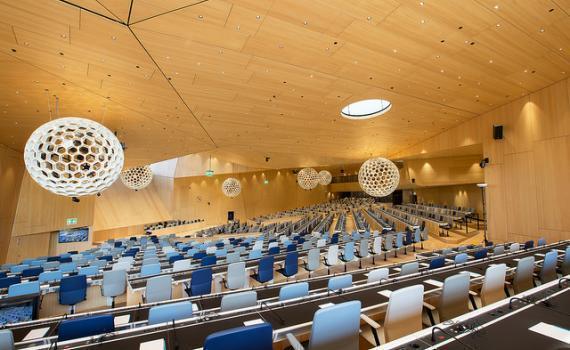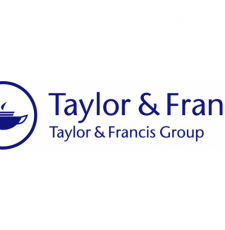
Evidence shows that libraries around the world are working under a patchwork of provisions in national copyright laws that are inconsistent and outdated, especially for online and cross-border uses, and that there is a real need for copyright law reform.
In developing countries, where easy access to knowledge is critical for education and socio-economic development, the situation is particularly acute. For example, out of 53 countries surveyed in Africa in the WIPO study by Professor Kenneth Crews, 13 countries have no exception for libraries, only one country allows inter-library document delivery, and no countries permit cross-border exchange.
For this reason, EIFL has been advocating for more than a decade at the World Intellectual Property Organisation (WIPO) for a global framework, so that libraries everywhere benefit from robust copyright exceptions to properly carry out their mission, and so that no country or region is left behind in the global digital age.
SPECIAL FOCUS AT WIPO
Two upcoming WIPO events will have a special focus on the issue: an International Conference on Copyright Limitations and Exceptions for Libraries, Archives, Museums and Educational & Research Institutions on 18-19 October 2019, followed by WIPO’s Standing Committee on Copyright and Related Rights (SCCR/39) that runs from 21-25 October 2019.
The objective of the international conference is to consider the opportunities and challenges provided by different legal options in addressing copyright problems relating to libraries, education and research, including normative approaches (EIFL’s preferred option), non-binding soft law, and licensing.
The conference will build on discussions and outcomes of three regional seminars that took place in 2019: 29-30 April in Singapore (Asia-Pacific); 12-13 June in Nairobi (Africa); 4-5 July in the Dominican Republic (Latin America and the Caribbean). At the regional seminar in Africa, attended by EIFL, member states agreed that the continent is falling behind the rest of the world in terms of library provisions in copyright laws, especially for uses of digital material. There was also consensus on the need to allow preservation by cultural heritage institutions, in particular to preserve and promote African culture.
To address the issues, member states suggested a number of concrete solutions including the need for a new legal framework, supranational measures to facilitate cross-border exchange, and extension of provisions in the Marrakesh Treaty for persons with print disabilities to other sectors, such as education. They also called for well-framed exceptions that promote access while protecting authors, and guidance and direction from WIPO in achieving them.
The international conference and the regional seminars are part of an Action Plan on Limitations and Exceptions adopted in June 2018 by WIPO member states, to provide the copyright committee (SCCR) with suggestions and possible areas for international co-operation to be discussed at SCCR/39. Consequently the first two days of SCCR/39 are devoted to discussion on limitations and exceptions for libraries and archives, education and research and persons with disabilities.
EIFL CALLS FOR ACTION TO LIFT COPYRIGHT BARRIERS
EIFL believes that it is time for real progress at SCCR. After more than a decade of debate, studies, seminars and action plans, EIFL calls on WIPO member states to recognize the evidence that the current framework on limitations and exceptions for libraries, archives and museums is not fit for purpose, especially in the digital age. We call on member states for effective action to lift copyright barriers that hinder or prevent libraries from providing access to knowledge and learning materials, or that unnecessarily increase its costs.
We call on SCCR, the committee that delivered the Marrakesh Treaty for persons with print disabilities (WIPO’s most successful treaty), to begin text-based work, starting with preservation, to remove copyright barriers for libraries carrying out their public service mission preserving our heritage, enabling access to research and disseminating information and knowledge.
EIFL will be represented in Geneva by a team with extensive experience in libraries and copyright issues: Teresa Hackett, EIFL Copyright and Libraries Programme Manager; Awa Diouf Cissé (Senegal), Kathy Matsika (Zimbabwe), Janegrace Kinyanjui and Joseph Kavula (Kenya), and Dick Kawooya (Uganda/USA). Dick will also participate in the conference panel on libraries.
- Follow on Twitter #Copyright4Libraries
- Watch SCCR/39 online: https://www.wipo.int/webcasting/en/?event=SCCR/39#demand
- Read why EIFL is advocating for an international treaty for libraries and archives.
SHARE / PRINT









